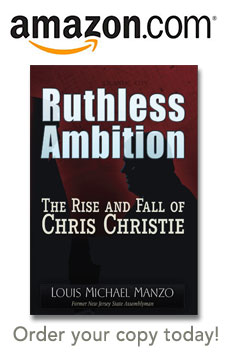PREZ Election Legal Battle: Paging Atticus Finch
By Louis Michael Manzo December 11, 2020
“There’s something in our world that makes men lose their heads—they couldn’t be fair if they tried.”
—Atticus Finch
As one of the most monumental Constitutional issues in our country’s history landed on the doorstep of the Supreme Court of the United States [SCOTUS], the Court took all of about 40 minutes to dismiss it. The Court’s Holiday Season Party will take longer to dispense. No opinion accompanied their ruling.
It was SCOTUS having another Dred Scott moment. Soon, they may have one more.
A United States Congressman from Pennsylvania, Mike Kelly, brought suite to seek injunctive relief, seeking to derail Pennsylvania’s certification and seating of electors to the Electoral College. Kelly’s case argued that the Pennsylvania legislature violated their own Constitution by not seeking a public voting referendum when changing the State’s election laws.
The facts and laws were on Kelly’s side. The Court was not.
SCOTUS answered with as few words as there is courage in the current makeup of the mostly conservative Court: “The application for injunctive relief presented to Justice Alito and by him referred to the Court is denied.” The Court’s chosen arrogance to not supply any reasoning for their action, hints at further evidence of yet another broken American institution.
Now, the State of Texas is the next up at bat to face the mighty SCOTUS. And, as any coy pitcher would, the Court has thrown a sucker pitch to set Texas up. They’ve asked the defendants in the case to file briefs by four in the afternoon on Thursday.
Window-dressing.
Texas, was soon joined by 17 other States, six of which enjoined their suit. They are arguing that six other States [all swing States in 2020’s election] violated the U.S. Constitution by permitting Governors, State Courts, and Secretary’s of State to rewrite election laws enacted by their State Legislatures. Because those rogue States did so, they argue that the voters in their own States were disenfranchised.
It is a sound legal argument. The matter cannot simply be disposed through the typical tools of a coward court—lack of jurisdiction and no standing. Suits between States can only be brought before SCOTUS. The Court is acting in a rare and uncustomary role as a trier of fact.
You can rest assured that, right now, the Justices have their law clerks burning the midnight oil, endeavoring to construct the whopper of all legal opinions to deny Texas and their 17 other plaintiffs relief.
Not because the argument lacks merit. But because the Court lacks mettle.
The Court’s excuse could be that no Federal Court should intervene and rule on State Law issues reserved for State’s Courts to resolve. They could also rule that no State has a right to intervene in the election laws of another State, even if said laws were contrary to the Constitution.
SCOTUS will have one hell of a hurdle to make such rulings believable in the eyes of half the country that are convinced the election was fixed. The Constitution is as clear as a bell—State’s Legislatures have the sole, express authority to determine election laws for Federal elections. Usurping this law was the catalyst for the fraud.
The Court could also split the baby. They could uphold the Constitution and provide no remedy. The Court was never going to overturn an election, but they don’t have to. SCOTUS could hold that six states violated the Constitution, and that its for those said State Legislatures to determine the remedy, per the Constitution.
Those remedies would include the State accepting the results of a fraudulent election and seating the electors certified. Overriding their own State’s certification of the fraudulent election and reseating the electors. Notifying Congress, that because of the fraud in their State election, they were not going to seat electors.
Such rulings would uphold the role of State Legislatures in determining election laws for Federal elections. The Constitution is silent as to whether electors selected in a corrupted election must not be designated by the States’ Legislatures. What SCOTUS would be saying, in this instance, is that the elections did not conform with the Constitution and that the State Legislatures must determine whether they will seat electors.
The latter of the two Court results projected here is the least likely result to expect. That is because such a ruling requires a court with true grit. With the passing of Scalia and Ginsburg, this Court has lost its nerve.
Louis Manzo is a Former New Jersey State Assemblyman who sat on the Assembly Health, Economic Development, and Environmental committees. Former Hudson County Freeholder. Former Chief of Jersey City’s Health Division & Director of the Hudson County Division of Environmental and Public Health.
.
Traditionally published American author. Published works include the bio, Ruthless Ambition: The Rise and Fall of Chris Christie ; and the novel, An Irish Lullaby. On occasion, a content contributor to various news and sports blogs. Regular guest on Connecticut morning radio talk show, The Phil Mikan Show [WLIS 1420 AM & WMRD 1150 AM].



Leave a Reply